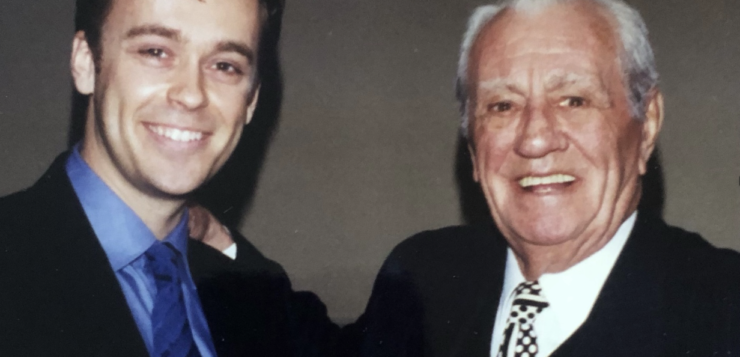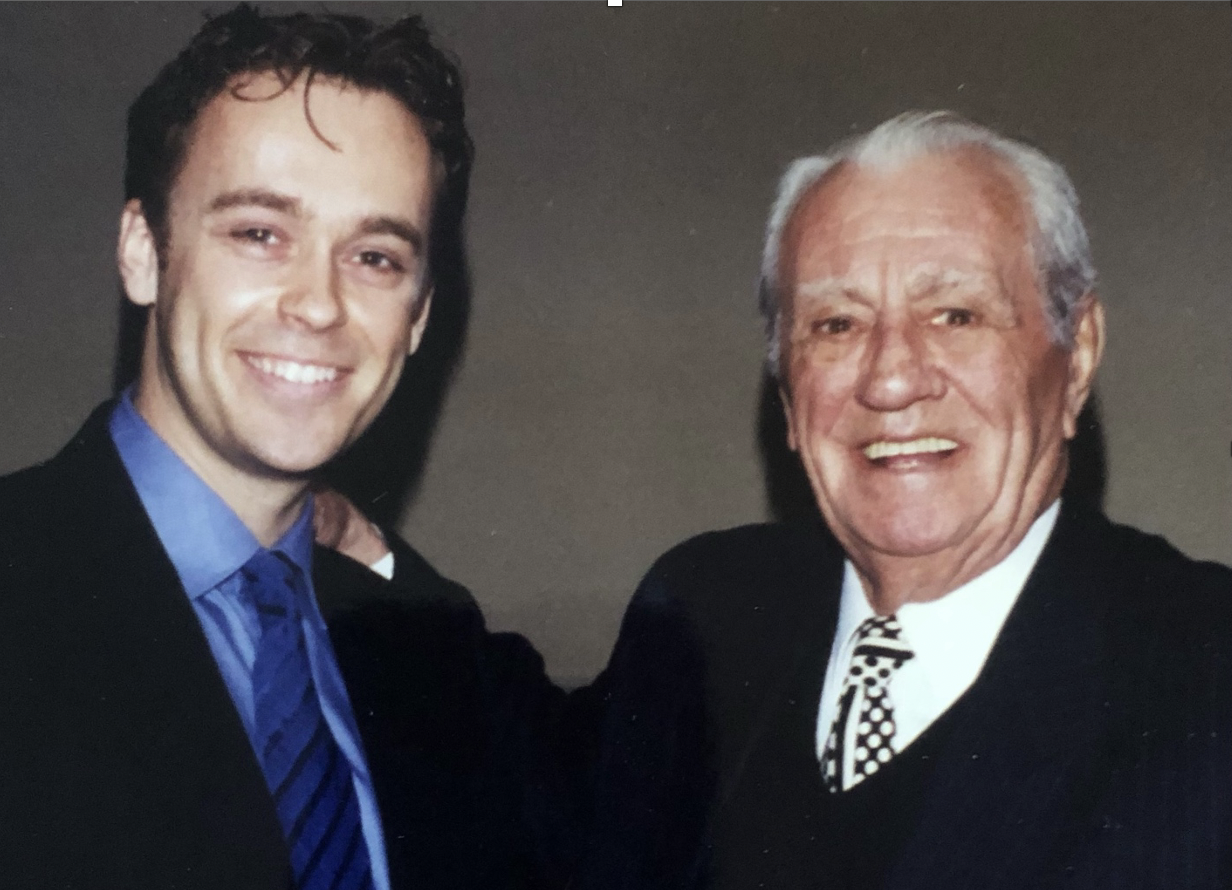“I’m Coming Out” Diana Ross’ 1979 hit roared from the stereo in the basement of my childhood home in rural Canada. I discoed across the floor dreaming that I was at Studio 54 and blushed when I caught my own reflection in a mirror. Weird. I looked so gay, yet it felt so natural. I didn’t look like the psychologically ill deviant then popular in cultural opinion. That song was an intimidating inspiration. I may have sung along loudly, but “I’m coming out” were the scariest words this teenager had ever heard.
“Pathetic fallacy” is a literary term for when the aspects of nature, usually the weather, match a character’s inner emotional state. Pathetic fallacy is also what I called myself when I saw my sweaty reflection in the mirror during these discoes.
I came out to my family when I was 22. It was a frightening experience made easier by my family’s remarkably calm acceptance. Perhaps I hadn’t been so subtle turning that song up and dancing myself into a frenzy.
With their approval in my back pocket, I headed to Manhattan to make my name as an actor. After graduating from the Neighborhood Playhouse in 1989, I entered show business and abruptly shut my closet door again.
One of the biggest challenges I faced as a young actor was homophobia. I found the stigma of homosexuality almost reason enough to end my career before it started. But several years later, I was fortunate to land a role in Paramount Pictures’ Kiss Me, Guido, one of the first gay films produced by a major studio. On set, several of the other young gay actors and I debated and analyzed the dangers of embracing our true selves in our work.
The history of closeted homosexuals in the film industry is well documented. One of my favorites was Sir Noël Coward, the biggest star of the 1930s. In that decade alone, he wrote 11 plays and musicals and appeared in or directed all of them in both London and New York. The film adaptation of his play Cavalcade won three Oscars, including Best Picture. He also won an honorary Oscar for Outstanding Production Achievement for the 1943 epic war film In Which We Serve. He was a remarkable inspiration for self-creation.
Part of my self-creation game-plan was to be a multi-hyphenate, an actor/writer/director type of guy. Having acted in a studio film, I decided my next step was writing plays. I’d never written one before, but I worked tirelessly as a young actor analyzing scripts, learning scene structure, and memorizing dialogue. I figured that was enough to get me started.
My first play, Red River, took about a year to write. It was terrible. I mounted it for one night at the WestBeth Theatre Center on Bank Street in the West Village of Manhattan. Ten minutes into that first (and only) performance, I knew it was a stinker. My second play, Void Where Prohibited, took another year. It was produced at HERE on lower Sixth Avenue in Soho and it was—OK. Certainly not good. My third play, Far from the Happening Crowd, was an entertaining evening of stories from the fringe of fame and celebrity where my Canadian farm-boy mentality made frequent social errors. For example, I once asked Ralph Lauren what he did for a living. True story. More memoir than play, it had limited potential. I was improving but needed to go deeper. The great change happened when I learned to write from my true self and life experience.
In 1997, I began work on a biographical piece about the aforementioned British bon vivant, master playwright, and performer Noël Coward. The epitome of the gay aesthetic for the first half of the 20th century, Mr. Coward never came out of the closet. Posthumous books were written establishing his homosexuality, but my play was one of the first to “out” him. At the same time, I embraced myself as a publicly gay actor. I decided that I would measure my success on my personal journey of love and celebration of my essential self, my true voice.
Writing the play had already changed my life, but onstage, I had to pass the test by “Team Coward.” Led by the famous casting director Geoffrey Johnson, Team Coward was well-known for handing out cease and desist letters for any and all defamation. When I spotted Mr. Johnson’s name on the Grove Street Playhouse’s reservation sheet one evening, I was thrilled. I assigned him the best seats in the house and wrote a welcome note that invited the team to enjoy the show.
There was a knock on my dressing room door afterwards. It was Geoffrey Johnson himself. With tears in his eyes, and to my great relief, he said he loved the show. He wondered if I could get him a script that he would send to Noël Coward’s lover Graham Payne in Switzerland. “Why yes, I could!” I exclaimed.
Months later, I received a formal invitation to the unveiling of the Noël Coward statue at the Gershwin Theater. To my surprise, the invite came from both Mr. Johnson and Mr. Payn.
On the morning of March 1, 1999, I joined these gentlemen and H.R.H. Prince Edward for “elevenses” (morning cocktails) before the unveiling. Mr. Payn could not have been kinder and more inclusive. He had read my play, loved it, and encouraged me to keep performing. He gave me full authority to continue to “out” Sir Noël Coward to the world. What are the chances that I would be given that great and honorable responsibility?
For this aspiring lad from Saskatoon, standing there as part of the Coward coterie was a moment beyond my wildest imagination. Afterward, we sallied up to a fancy lunch on the Upper East Side. As I entered the restaurant, surrounded by these brave and talented gay pioneers, I caught my reflection in a window. Still so very gay, now completely out, and neither pathetic nor a fallacy.
Craig Archibald, born in Canada, is the author of The Actor’s Mindset. As a writer, director, producer and actor, Craig has shown a noticeable range of versatility and experience in almost all aspects of entertainment. His stage acting career began in Saskatoon, Canada in 1978, his career in film and television in New York City in 1995, and is best recognized for his founding of The Archibald Studio, established to offer instruction to actors, writers and directors of all experience levels, even training new hopefuls entering the field. Mr. Archibald is a Lifetime Member of the Actor’s Studio.







